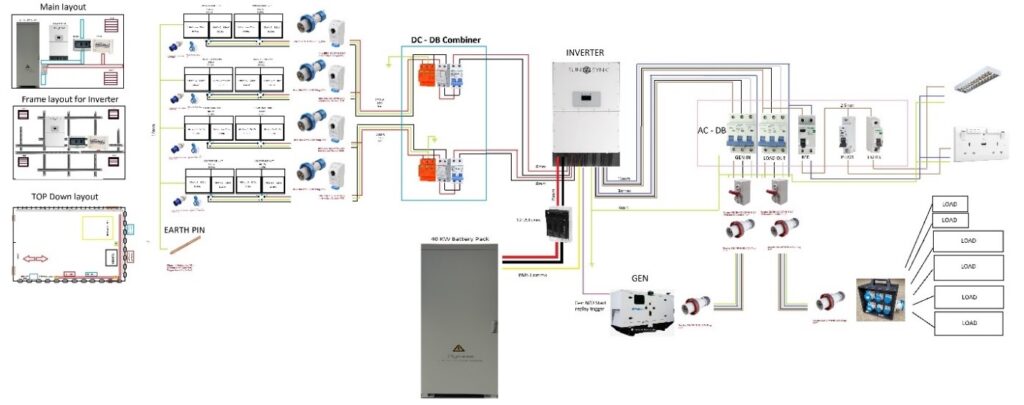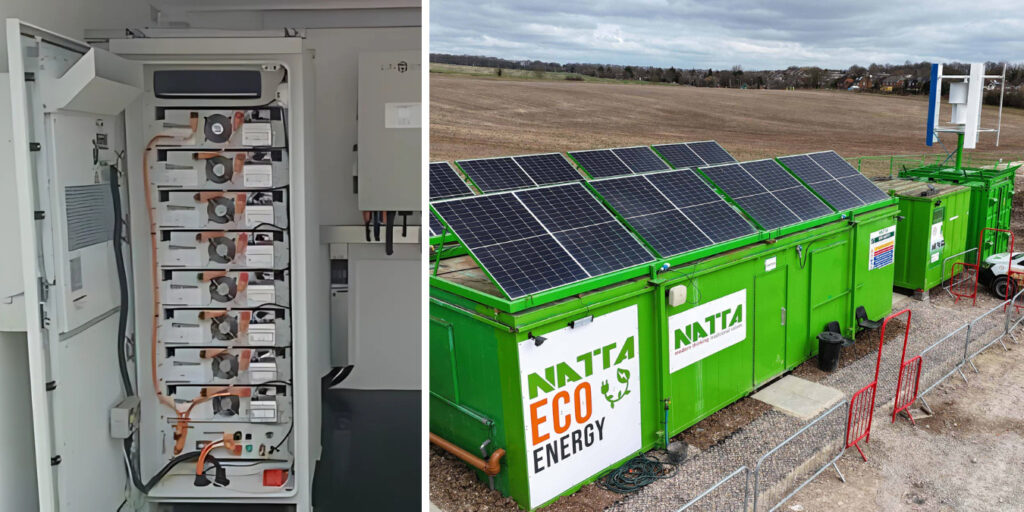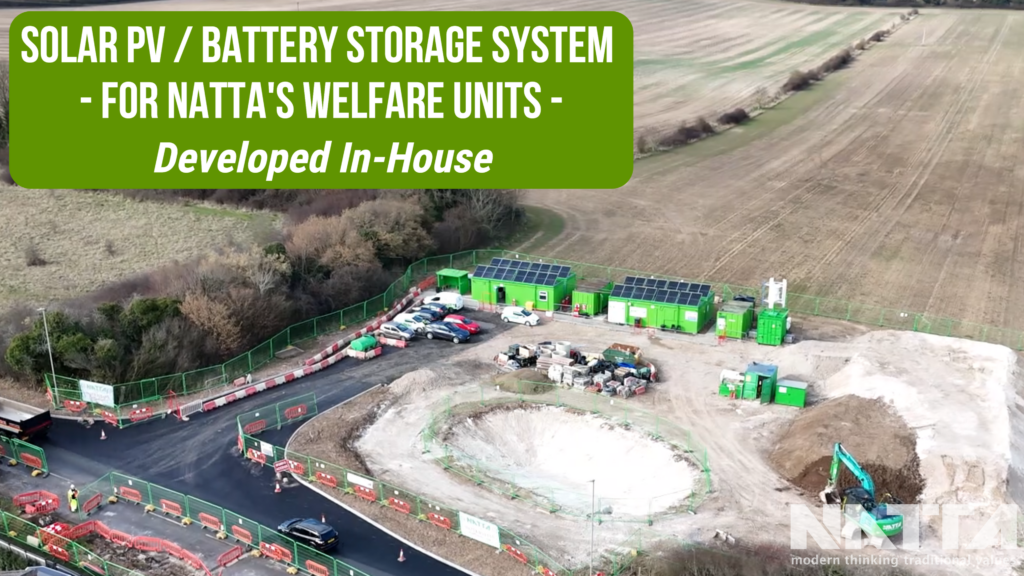Natta Solar PV/Battery Storage, Wind Turbines & HVO Diesel
At Natta, we constantly strive to push the boundaries of sustainability and renewable energy. Our in-house Solar PV/Battery storage and wind turbine system for our welfare cabins has now been installed at our Manydown site in Basingstoke. This system taps into solar energy to reduce our dependence on fossil fuels and generators yearly. Here we are working as the Main Contractor for Urban and Civic plc.
Our latest innovation, a 3kW 380V vertical axis wind turbine, has been installed to gather energy throughout the day to power our on site operations. By maximising natural energy sources, we are significantly cutting down on our reliance on traditional power sources.
Our Manydown PV/Battery Storage – click on the image to watch the video
We have installed a 40 kWh system, with 35 PV panels, feeding 8 No. capacity batteries via an inverter. Developed and installed by our in-house services team, the cabinets have heating and cooling capabilities to optimise efficiency depending on the weather, along with smoke and heat detectors and associated fire suppression systems for safety.
The system allows us to store and use renewable energy when needed most, reducing reliance on generators.

Example of a full day of activity including Solar and Wind Turbine – 19.03.2025
How Solar Energy Works
The site cabins are energy efficient, features include: improved insulation, timed heaters and thermostats, sensors for internal and external lights and door closers. The Solar PV battery system combines solar panels with energy storage batteries to harness sunlight and deliver dependable electricity. These systems convert light directly into power, offering a sustainable and effective solution for Natta’s energy needs.
To measure the energy output, we are using a smart system, SunSynk.

Diagram of the SunSynk System with the Generator
Advantages of Solar PV / Battery Storage System:
Environmental Sustainability: By using clean solar energy, we reduce our carbon footprint and environmental impact. Our efforts contribute to combating climate change and preserving the planet.
Cost Savings: Decreasing our reliance on grid electricity, diesel, and generators translates to significant energy cost reductions.
Energy Independence: Generating and storing our own electricity enhances our energy self-sufficiency. This resilience ensures uninterrupted operations, even during power outages or disruptions.
Reduced Noise and Emissions: Unlike noisy and polluting diesel generators, our solar PV battery systems will provide a silent and emission-free alternative, fostering a more pleasant work environment and improving community relations.
Scalability and Flexibility: Our systems can be customised to match the energy demands of projects of varying sizes and complexities. This flexibility allows for adjustments to meet evolving project needs.

Manydown Site Cabins 8No. 5KW capacity batteries
Biofuel – HVO
Beyond renewable energy, we are exploring alternative biofuels. At our Manydown, Basingstoke project, we are trialling Hydrotreated Vegetable Oil (HVO) fuel as a sustainable alternative to diesel. The biofuel is used in the generators and all of our machines and vans on site. This contributes to our ongoing efforts to decarbonise operations and drive meaningful environmental change across our sites.
At Natta, we continue to invest in new, low-emission plant and machinery, reducing our fuel consumption and carbon output. We’re committed to safeguarding the future for generations to come and making a positive impact on the planet.
Advantages of HVO Fuel:
Less Emissions: The production and combustion of HVO fuel releases up to 90% less CO2 than regular diesel.
Fossil Free: Uses renewable raw materials, not fossil raw materials, resulting in a fossil-free and biodegradable product.
Good Performance: Delivers virtually the same energy as conventional diesel; therefore, it can be used as a direct replacement with no modifications.
Low Maintenance & Safe: Contains no FAME components that can lead to fouled filters and harmful substances. In addition, it does not solidify at low temperatures.
Odourless: Fewer pollutants are emitted into the environment and contain virtually no sulphur particles, making it user-friendly for humans.









 Facebook
Facebook Youtube
Youtube LinkedIn
LinkedIn Instagram
Instagram